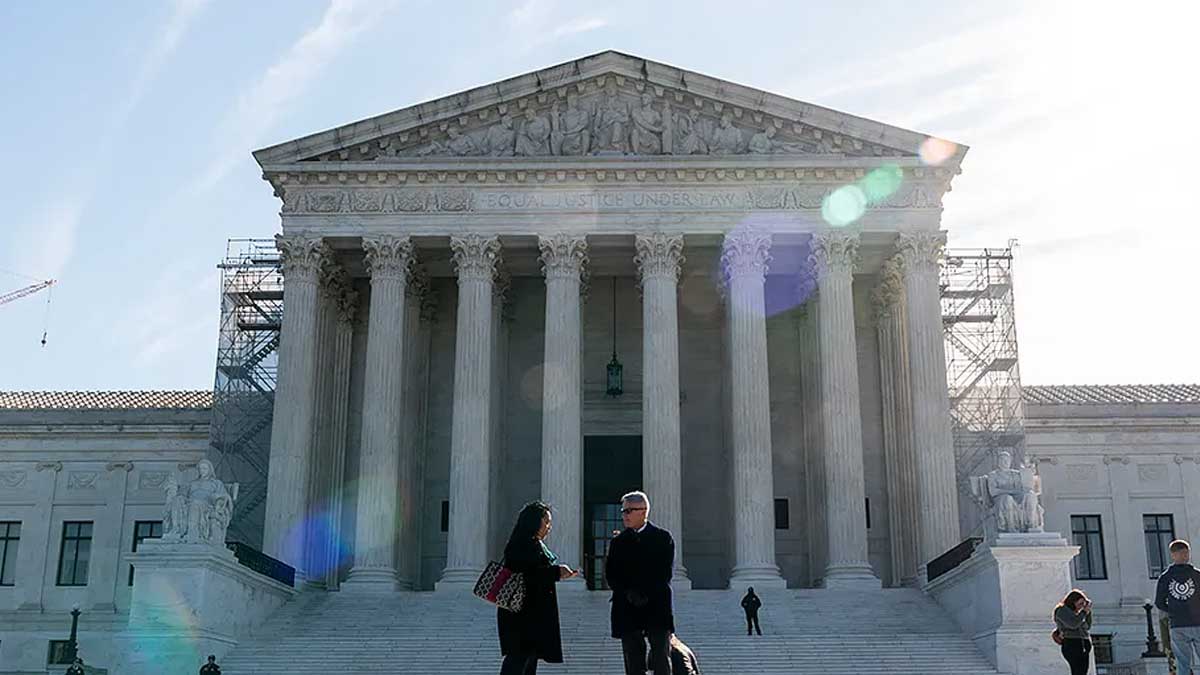- Home
- Billionaires
- Investing Newsletters
- 193CC 1000
- Article Layout 2
- Article Layout 3
- Article Layout 4
- Article Layout 5
- Article Layout 6
- Article Layout 7
- Article Layout 8
- Article Layout 9
- Article Layout 10
- Article Layout 11
- Article Layout 12
- Article Layout 13
- Article Layout 14
- Article Sidebar
- Post Format
- pages
- Archive Layouts
- Post Gallery
- Post Video Background
- Post Review
- Sponsored Post
- Leadership
- Business
- Money
- Small Business
- Innovation
- Shop
Recent Posts
Supreme Court OKs Idaho’s Ban on Youth Gender-Affirming Care

The Supreme Court’s decision to allow Idaho to enforce its ban on gender-affirming care for minors, pending appeal, marks a significant development in the ongoing debate over transgender rights. The law, which was signed last April, is part of a broader trend of state-level legislation targeting transgender individuals, particularly young people seeking medical care. Idaho’s ban prohibits the use of puberty blockers, hormone therapy, and gender affirmation surgery for individuals under 18, with providers facing criminal penalties for non-compliance.
The legal battle over the ban has been contentious. In January, a U.S. District Court upheld a preliminary injunction blocking the law’s enforcement, ruling that it violated the 14th Amendment’s guarantees of due process and equal protection. However, the Supreme Court’s decision to grant a stay on the lower court’s ruling means that the ban can now be enforced while the case is appealed, temporarily reinstating the law and allowing Idaho to continue its enforcement efforts.
The Supreme Court’s ruling was not without nuance. While the majority of justices supported the stay, an exception was made to prevent the law’s enforcement against the plaintiffs challenging it, which include two teenage transgender girls and the American Civil Liberties Union of Idaho. This exception means that, while the ban can be enforced more broadly, these specific individuals and organizations are protected from its effects pending the outcome of the appeal.
The ruling has drawn sharp criticism from advocacy groups, including the ACLU, who argue that it will harm transgender youth and their families. They contend that the law’s enforcement will disrupt and restrict access to vital medical care for transgender minors, while also creating confusion and uncertainty for healthcare providers and families navigating these complex issues.
Overall, the Supreme Court’s decision to allow Idaho’s ban on gender-affirming care to be enforced represents a significant setback for transgender rights advocates. The case highlights the ongoing legal and political battles over transgender rights in the United States, particularly regarding access to healthcare for transgender youth.
Recent Posts
Categories
- 193 Countries Consortium Partner1
- 193cc Digital Assets2
- 5G1
- Aerospace & Defense48
- AI37
- Arts3
- Banking & Insurance11
- Big Data3
- Billionaires1,261
- Boats & Planes1
- Business332
- Careers13
- Cars & Bikes79
- CEO Network1
- CFO Network17
- CHRO Network1
- CIO Network1
- Cloud10
- CMO Network18
- Commercial Real Estate7
- Consultant1
- Consumer Tech194
- CxO1
- Cybersecurity73
- Dining1
- Diversity, Equity & Inclusion4
- Education7
- Energy8
- Enterprise Tech29
- Events11
- Fintech1
- Food & Drink2
- Franchises1
- Freelance1
- Future Of Work2
- Games149
- GIG1
- Healthcare79
- Hollywood & Entertainment203
- Houses1
- India’s 1000 Richest1
- Innovation46
- Investing2
- Investing Newsletters4
- Leadership65
- Lifestyle11
- Manufacturing1
- Markets20
- Media327
- Mobile phone1
- Money13
- Personal Finance2
- Policy569
- Real Estate1
- Research6
- Retail1
- Retirement1
- Small Business1
- SportsMoney42
- Style & Beauty1
- Success Income1
- Taxes2
- Travel10
- Uncategorized13
- Vices1
- Watches & Jewelry2
- world's billionaires1,230
- Worlds Richest Self-Made Women2
Related Articles
Musk Endorses Mounjaro, Backs Affordable Weight-Loss Drugs
Elon Musk, the CEO of Tesla, made headlines on Christmas Day with...
By 193cc Agency CouncilDecember 27, 2024What Healthcare Can Learn from Nvidia’s Success
The tech industry is undergoing a seismic transformation, with two of its...
By 193cc Agency CouncilDecember 16, 2024Salmonella Triggers Recalls of Costco Eggs and Cucumbers
The recent salmonella outbreak has prompted the recall of two major food...
By 193cc Agency CouncilNovember 30, 2024Bird Flu Found in Raw Milk in California, Recall Issued
California health authorities have confirmed the presence of the bird flu virus...
By 193cc Agency CouncilNovember 25, 2024















Leave a comment